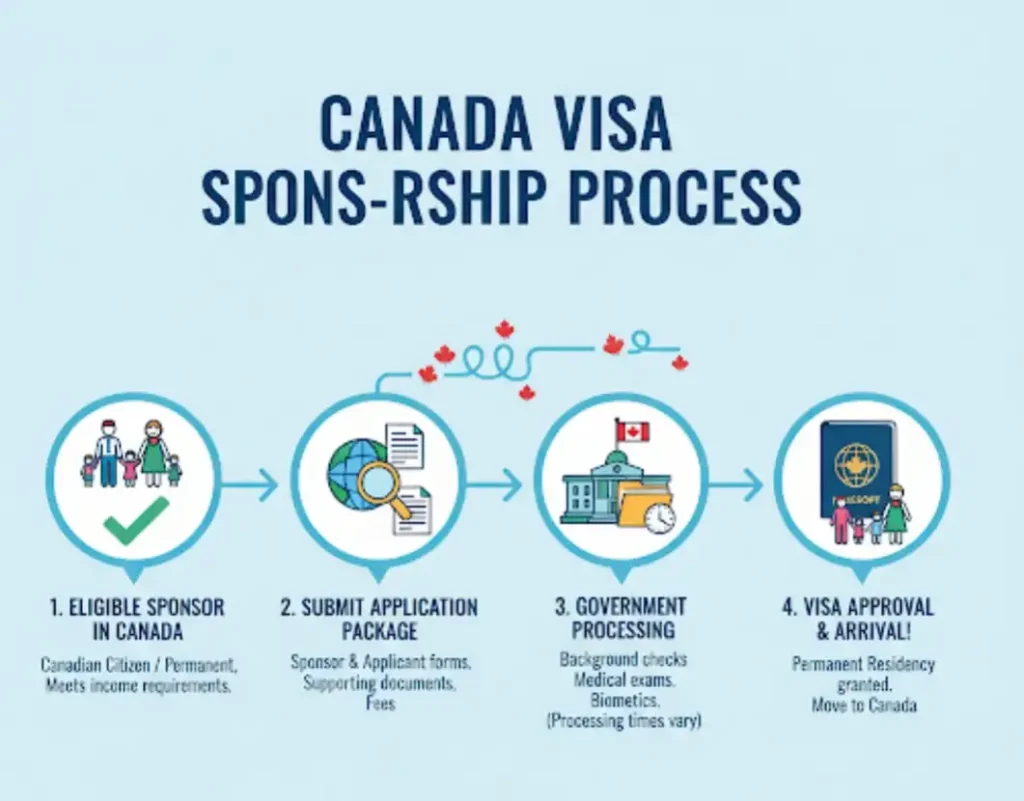Introduction
Canada is one of the best countries in the world for nurses who want to work abroad. The country has a strong healthcare system, but it is facing a big shortage of nurses. This shortage has opened the door for foreign-trained nurses to move to Canada and work legally. To make the process easier, many Canadian employers and provincial governments are offering visa sponsorship.
For nurses from countries like Nigeria, South Africa, Kenya, India, Philippines, and others, this is a golden opportunity. With sponsorship, you can move to Canada, get a good-paying job, and even have the chance to bring your family along without spending any of your money, employer is the one to spend.
Why Canada Needs Nurses
The demand for nurses in Canada is very high. Here are some reasons:
- Shortage of staff – Hospitals and clinics don’t have enough nurses to meet patient needs.
- Aging population – Canada has many elderly people, and they need more care.
- Government support – The government knows the importance of healthcare workers, so it is creating immigration programs to bring in more nurses.
This shortage means your chances of getting hired are higher, especially if you have the right qualifications and experience.
What Visa Sponsorship Means for Nurses
Visa sponsorship simply means that an employer or provincial government in Canada is ready to support your work permit application. Instead of you struggling alone, they help with paperwork, immigration documents, and also pay off the cost. [this means you as the applicant] does not spend any money.

With sponsorship, you are more secure because:
- You already have a job offer before entering Canada.
- You get a work permit tied to that employer.
- Many sponsorships can later lead to permanent residency (PR).
Types of Nurse Jobs in Canada
There are different kinds of nursing roles available. Some require higher education and experience, while others are entry-level positions. (meaning you can enter the work without any degree or certificate)
- Registered Nurses (RNs) – Work in hospitals, clinics, and specialized units.
- Licensed Practical Nurses (LPNs) – Provide basic nursing care under the supervision of RNs.
- Nurse Aides/Orderlies/Care Assistants – Support patients with daily activities like feeding, bathing, and moving around.
- Specialized Nurses – Work in ICUs, pediatrics, psychiatric care, surgery, etc.
- Community and Home Care Nurses – Visit patients at home, provide health advice, and manage long-term care.
Salary Range for Nurses in Canada
Nursing in Canada pays well compared to many countries. The salary depends on the role, experience, and province. Here is a simple table:
| Job Position | Salary Range (Per Year in CAD) |
|---|---|
| Registered Nurse (RN) | $60,000 – $95,000 |
| Licensed Practical Nurse (LPN) | $45,000 – $65,000 |
| Nurse Aide / Care Assistant | $30,000 – $45,000 |
| Specialized Nurse (ICU, Surgery, etc.) | $70,000 – $100,000+ |
Note: Some provinces pay higher than others. For example, nurses in Alberta and Ontario may earn more than those in smaller provinces.
Requirements to Work as a Nurse in Canada
To get a nursing job in Canada, you must meet some requirements:
- Education – A nursing degree or diploma from a recognized institution.
- Language Test – You must prove your English or French skills (IELTS, CELBAN, or others).
- Licensing – Most nurses need to pass the NCLEX-RN exam or meet the rules of the provincial nursing body.
- Experience – Some employers prefer nurses with at least 1–2 years of work experience.
- Adaptability – You must be ready to adjust to Canadian healthcare standards.
How to Apply for Nurse Jobs with Visa Sponsorship
There are different ways you can find and apply for nursing jobs in Canada:
- Direct Applications – Apply directly on hospital or clinic websites.
- Government Job Bank – Canada has an official job website where many employers post vacancies.
- Recruitment Agencies – Some agencies connect international nurses with Canadian employers.
- Provincial Programs – Some provinces run recruitment drives to bring in foreign nurses.
The step by steps process how to apply:
- Search for jobs.
- Submit your resume and cover letter.
- Attend an interview (often online).
- Get a job offer with sponsorship.
- Apply for your work permit and visa.
Provinces and Programs Supporting Foreign Nurses
Different provinces have created special programs to attract foreign nurses. Some popular ones are:
- Ontario Internationally Educated Nurses Program – Helps foreign nurses get licensed and work.
- British Columbia – Health Match BC – A free recruitment service that connects healthcare workers with employers.
- Nova Scotia – Runs frequent international recruitment drives.
- New Brunswick – Offers job fairs and nurse recruitment programs.
- Saskatchewan and Manitoba – Have provincial nominee programs (PNPs) that favor healthcare workers
Pathways to Permanent Residency for Nurses
If you start with a sponsored job, you can later apply for permanent residency. Some common pathways are:
- Express Entry (Federal Skilled Worker or Canadian Experience Class) — if you meet points and other requirements.
- Provincial Nominee Program (PNP) — provinces nominate skilled workers; this is a common route for nurses already working in a province.
- Atlantic Immigration Program — for nurses hired in Atlantic provinces.
- Rural & Northern Immigration Pilot (RNIP) — for nurses who accept jobs in participating small communities.
Which path is best depends on your job, province, and personal situation.
Challenges Foreign Nurses May Face
While Canada offers big opportunities, there are also challenges:
- Licensing Process – Can take time and money.
- Cultural Differences – Work culture in Canada may be different from back home.
- Cost of Living – Cities like Toronto and Vancouver are expensive.
- Relocation Stress – Moving with family, settling children in schools, and adjusting to new weather.
Most nurses who prepare and follow the steps overcome these challenges. Don’t rush — plan..
Tips for Success
To increase your chances of getting hired so quick:
- Write a Canadian-style resume and cover letter.
- Join online groups of nurses already in Canada to learn from their experience.
- Keep upgrading your skills through short courses and certifications.
- Always check official websites for updates on immigration rules.
Conclusion
Nursing in Canada with visa sponsorship is a great chance for foreign-trained nurses. With high demand, good salaries, and support from the government, it is one of the best career paths for immigrants. Whether you are an RN, LPN, or even a nurse aide, there are opportunities waiting for you.
If you prepare well, pass your exams, and apply through the right channels, you can secure a stable future for yourself and your family in Canada.
Frequently Asked Questions/Answers
1. Are nurses in demand in Canada?
Yes, almost every province in Canada needs more nurses.
2. Do Canadian hospitals sponsor foreign nurses?
Yes, many hospitals and healthcare centers sponsor qualified nurses.
3. What is the average salary for nurses in Canada?
Registered Nurses earn about $60,000–$95,000 yearly.
4. Do I need to pass an exam before working as a nurse in Canada?
Yes, most nurses must pass licensing exams like the NCLEX-RN.
5. Can I bring my family with me?
Yes, most sponsorship programs allow you to bring your spouse and children.
6. Can nursing jobs lead to permanent residency?
Yes, many sponsored nursing jobs can lead to PR through Express Entry or PNPs.
7. Which province is best for foreign nurses?
Ontario, British Columbia, and Nova Scotia are leading provinces recruiting foreign nurses.
Where to Apply for Nurse Jobs in Canada
Here are some useful websites where you can search and apply for nurse jobs with sponsorship:
- Job Bank Canada – https://www.jobbank.gc.ca
- Health Match BC – https://www.healthmatchbc.org
- Ontario Internationally Educated Nurses Program – https://www.healthforceontario.ca
- Nova Scotia Health Authority Jobs – https://jobs.nshealth.ca
- New Brunswick International Recruitment – https://livinginnb.ca
- Saskatchewan Health Careers – https://www.healthcareersinsask.ca
